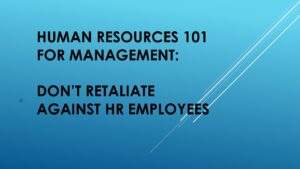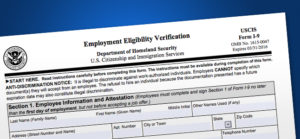 According to the American Staffing Association, U.S. staffing companies employed an average of 3.32 million temporary and contract workers per week in the third quarter of 2015. That means that many American workers have “joint employers” consisting of a staffing or employment agency, and the agency’s client – the actual company where the employee is physically working. This relationship can be a little cloudy for both the worker and the employers when complaints of discrimination arise. Who is the employer? Who is liable for discrimination in the workplace? As we see in the recent case of Burton v. Freescale Semiconductor, both the staffing agency and their client may be liable.
According to the American Staffing Association, U.S. staffing companies employed an average of 3.32 million temporary and contract workers per week in the third quarter of 2015. That means that many American workers have “joint employers” consisting of a staffing or employment agency, and the agency’s client – the actual company where the employee is physically working. This relationship can be a little cloudy for both the worker and the employers when complaints of discrimination arise. Who is the employer? Who is liable for discrimination in the workplace? As we see in the recent case of Burton v. Freescale Semiconductor, both the staffing agency and their client may be liable.
Nicole Burton was employed by Manpower, a staffing agency, who placed her at Freescale, a microchip manufacturer. During her employment she inhaled chemical fumes, eventually seeking medical attention. After her condition did not improve, she made a workers compensation claim. Shortly thereafter, Freescale decided to terminate Burton, but waited about a month before advising Burton of her termination. During this interim one month period, Manpower asked Freescale for documentation to support the termination, and Freescale began to generate “retrospective documentation” regarding performance problems. In other words, it began looking for reasons to justify the termination after the decision to terminate was already made. Manpower and Freescale officials also conducted a conference call to establish a “communication plan” regarding the termination. Burton was eventually terminated for four distinct reasons – two of which were discovered after the decision to terminate was already made.
Burton sued both companies alleging claims of disability discrimination and workers compensation retaliation. Manpower argued it was not liable, as the decision to terminate was made by Freescale. Freescale argued it was not liable, as Manpower – the company who paid Burton’s salary, was her employer. The trial court agreed and dismissed Burton’s lawsuit.
On appeal, the Fifth Circuit Court of Appeals disagreed with both arguments and reversed the trial court’s dismissal. The Fifth Circuit agreed that being a “joint employer” did not create automatic liability for alleged discrimination, but it utilized two commonly used tests to determine if a worker is an “employee” of a particular entity. Freescale had the right to control Burton’s work, as they supervised her, had the ability to evaluate her performance and discipline her, and in this case, recommended her termination. The court concluded Freescale was an “employer” that could be held liable under the discrimination statutes.
As for Manpower, the evidence in this case indicated that it was not a passive actor, but rather participated in the decision to terminate Burton. Manpower was involved in a conference call with Freescale officials regarding Burton’s termination, created a “communication plan” with Freescale, and was involved in Freescale’s document gathering to “justify” the termination. The evidence in this case created a fact issue as to whether Manpower knew or should have known about Freescale’s discriminatory conduct, and failed to take corrective measures within its control.
Manpower, like most staffing agencies, had anti-discrimination policies for their employees that prohibit discrimination by the agency’s clients. In theory, these agencies should investigate and work with, or if necessary, take action against their clients to end the discrimination. In reality, however, many employment agencies are hesitant to disturb the relationship that have with their clients for fear of losing business. As the Burton case demonstrates, however, Manpower’s failure to promptly address the possible discrimination by one of its clients will wind up costing them.
“If we accept and acquiesce in the face of discrimination, we accept the responsibility ourselves and allow those responsible to salve their conscience by believing that they have our acceptance and concurrence. We should, therefore, protest openly everything . . . that smacks of discrimination or slander.”
Mary McLeod Bethune (1875 – 1955)





